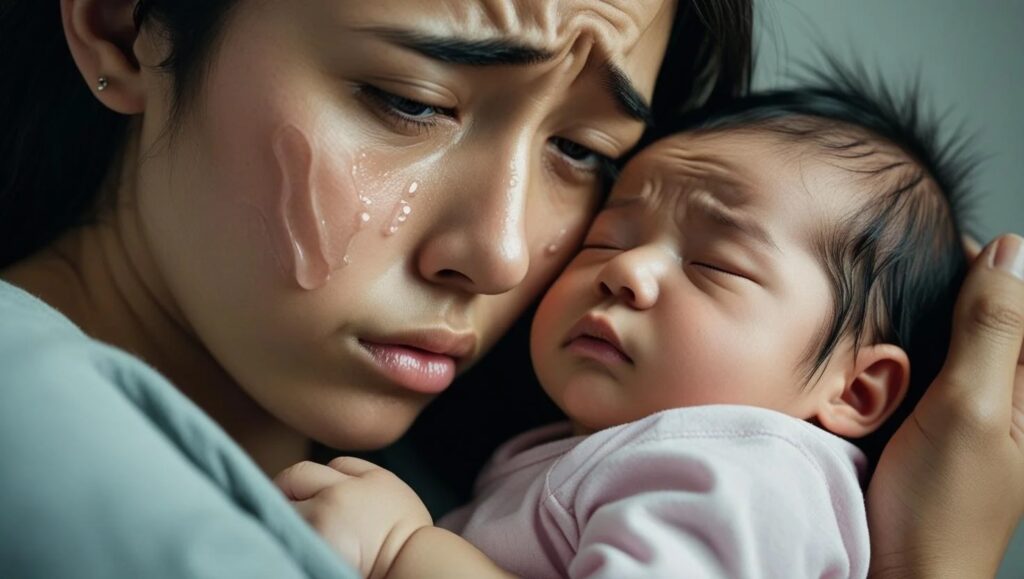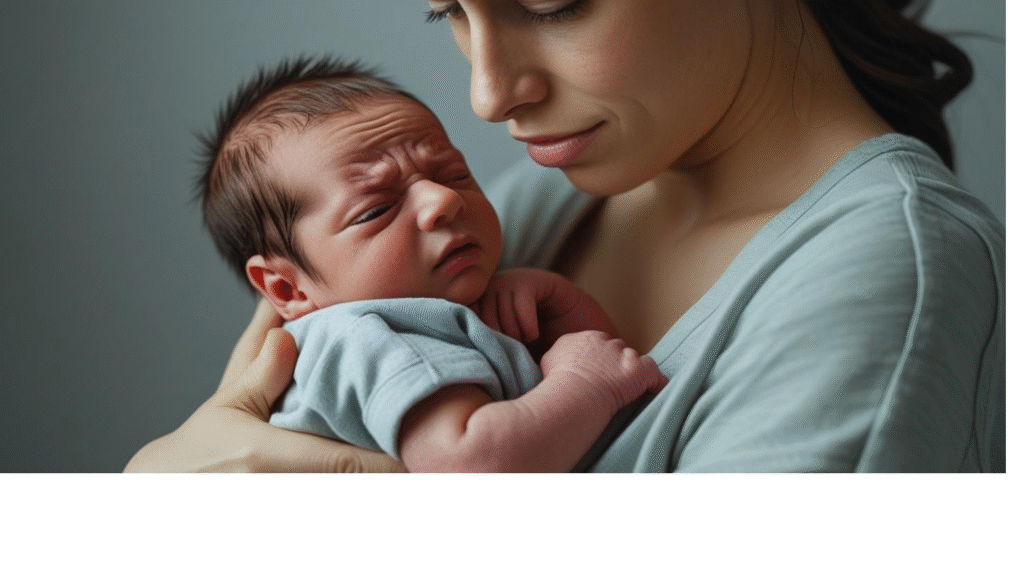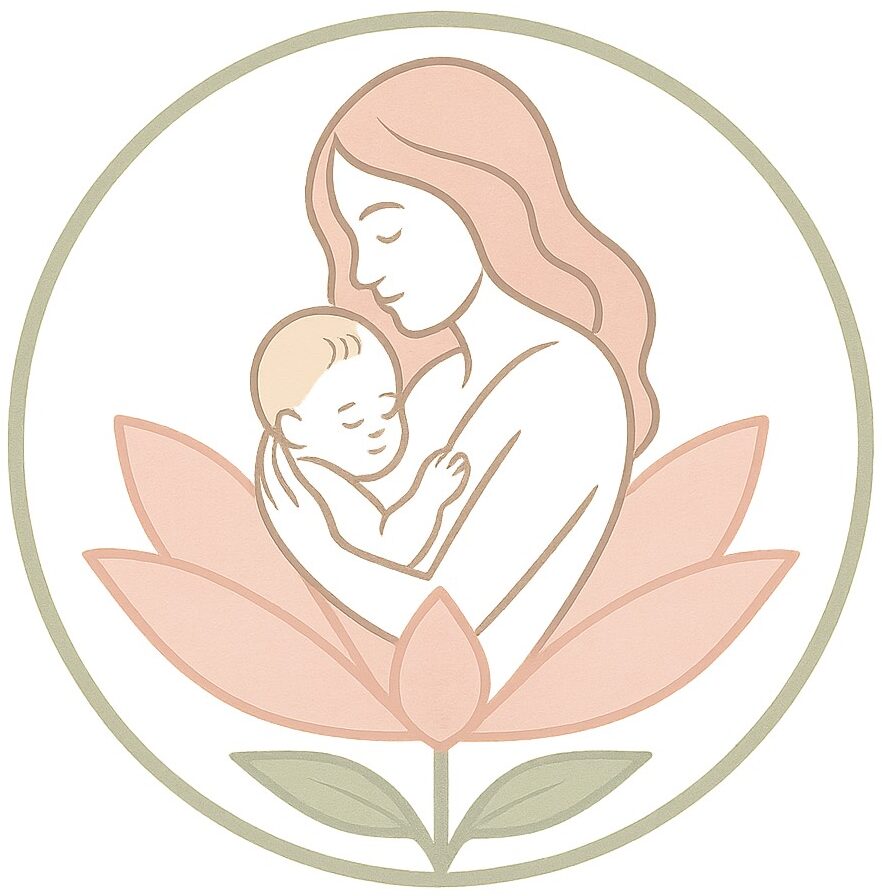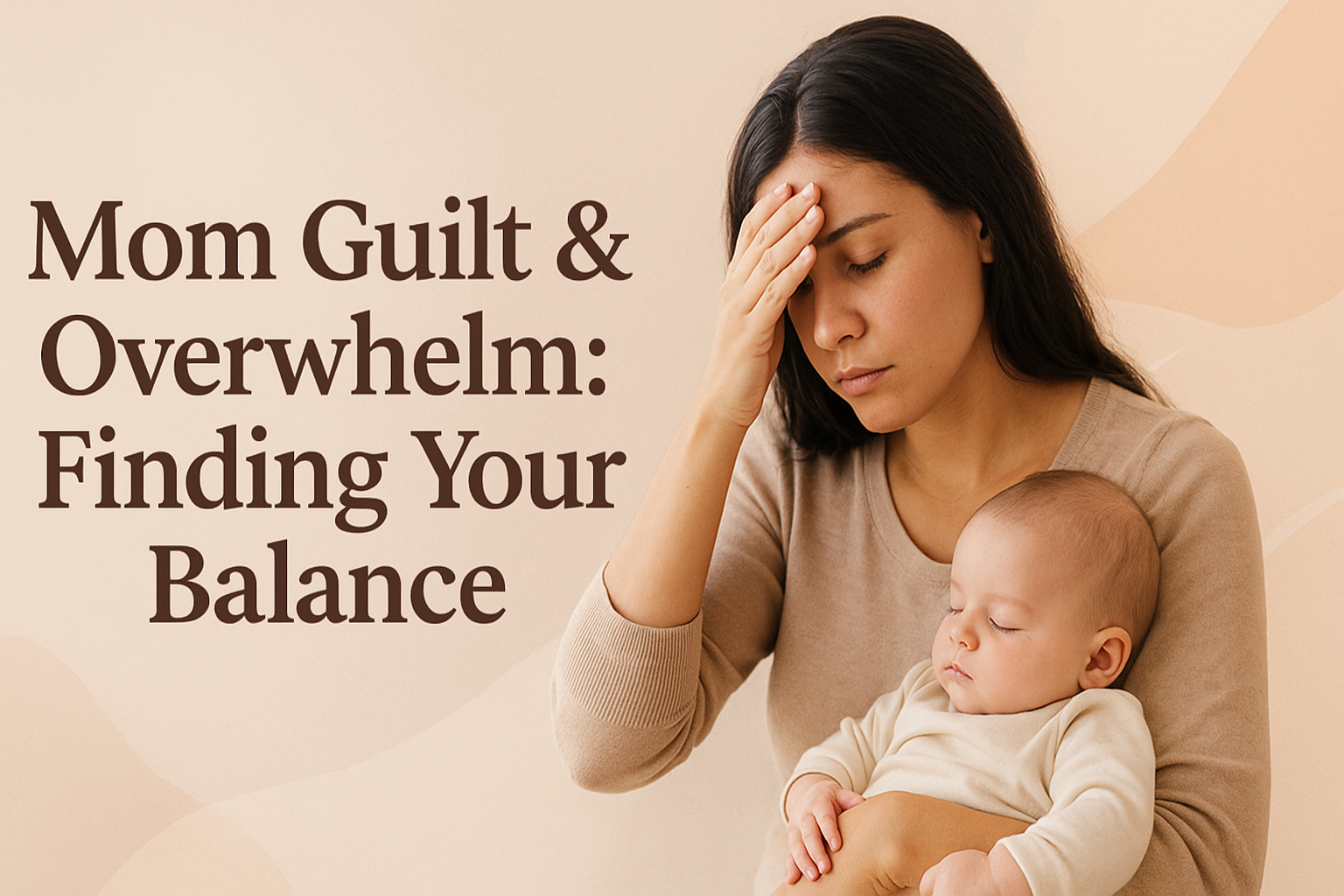
“Postpartum anxiety vs baby blues isn’t obvious, but your emotions matters and support is available.”
Postpartum anxiety vs baby blues can feel similar, but understanding the signs helps you get the right support and start healing, especially when you’re feeling emotionally overwhelmed as a new mom. But understanding the difference between these two experiences is vital. With the right knowledge, you can get the support you need and start feeling like yourself again.
Postpartum Anxiety vs Baby Blues: What’s the Difference?
Postpartum anxiety vs baby blues is a mental health condition that affects mothers after childbirth, marked by persistent, overwhelming worry, fear, and nervousness that go beyond the normal concerns of new parenthood.
At its core, it is the mind’s attempt to protect both mother and baby, but it does so in a way that becomes exhausting, intrusive, and debilitating.
Unlike typical stress or the temporary “baby blues,” postpartum anxiety creates a constant state of hyper-alertness, racing thoughts, irrational fears (often about the baby’s safety), and physical symptoms like a pounding heart, dizziness, or trouble sleeping.
Emotionally, it can feel like you’re spiraling inside while trying to appear calm on the outside. It is deeply isolating, often misunderstood, and frequently hidden behind a smile. Yet, it is real, treatable, and nothing to be ashamed of.
Postpartum anxiety vs baby blues does it make you feel overwhelmed after birth? You’re not alone. Many new moms experience emotional ups and downs, but there’s a big difference between postpartum anxiety vs baby blues It’s very important to know which one you’re experiencing, in order to enable you get the right support, healing, and care you deserve.
Welcoming a baby into your life is a powerful and emotional transition, but it can also bring unexpected mental and emotional challenges. Many new moms feel overwhelmed, tearful, or on edge in the days after birth. But how can you tell if it’s just the “baby blues” or something more serious like postpartum anxiety?
In this post, we’ll explore the key differences between baby blues and postpartum anxiety, postpartum anxiety disorders, signs to look for, and how to get compassionate support.
What are the Baby Blues?
The baby blues are a common and temporary emotional response to childbirth. They affect up to 80% of new mothers. The baby blues are a common and temporary emotional state that many new mothers experience within the first few days after childbirth. Symptoms may include mood swings, irritability, sadness, crying spells, anxiety, and feeling overwhelmed. These feelings usually start around day 3 or 4 postpartum and often peak by the end of the first week. The baby blues are caused by a sudden drop in pregnancy hormones, lack of sleep, and the stress of adjusting to new motherhood. Unlike postpartum depression or postpartum anxiety, the baby blues are short-lived and generally resolve on their own within two weeks. While they don’t usually require treatment, emotional support from loved ones can make a big difference.
Baby blues Signs available
- Tearfulness or crying for no obvious reason
- Feeling overwhelmed or irritable
- Mood swings
- Trouble sleeping (even when the baby sleeps)
- Mild anxiety or sadness
These feelings usually start a few days after birth and fade within 2 weeks without treatment.
What is Postpartum Anxiety?
Postpartum anxiety is more intense, persistent, and intrusive. It may interfere with your ability to function or care for your baby and yourself. Now we understand what postpartum anxiety is all about, let’s go more deeper into what postpartum anxiety disorder is all about.
Postpartum Anxiety Disorder is a clinically recognised perinatal mood and anxiety disorder (PMAD) that occurs after childbirth and involves intense, persistent, and often irrational worry or fear. It goes far beyond typical new-mom stress or the baby blues. Mothers with this disorder experience racing thoughts, obsessive fears (often about the baby’s safety), physical symptoms like a rapid heartbeat or shortness of breath, and an overwhelming sense of dread, even when everything appears “fine.” Postpartum anxiety disorder often coexists with insomnia, restlessness, and a constant feeling of being “on edge” or emotionally flooded. It’s not just worrying, it’s worry that controls your thoughts, disturbs your sleep, and interferes with daily life and bonding with your baby. While often overlooked or misdiagnosed, this condition is very real, deeply distressing, and highly treatable with the right support and care.
Unlike the baby blues, postpartum anxiety doesn’t go away on its own and may worsen over time.
Postpartum Anxiety Symptoms: What to Look Out For
Recognizing the signs of postpartum anxiety disorder can be life-changing. Many mothers suffer in silence, unsure if what they’re feeling is normal. If you’re in the postpartum period and wondering whether your anxiety might be more than just new-mom worries, here are key things to look out for:
🔹 1. Racing Thoughts
You can’t shut your mind off, especially at night. You may feel trapped in constant “what if” scenarios about your baby’s health, safety, or your parenting abilities.
🔹 2. Physical Symptoms
Tight chest, shallow breathing, nausea, sweating, trembling, or a racing heart often mistaken for a panic attack.
🔹 3. Obsessive Worry
Fear that something bad will happen, even without a clear reason. You might check on the baby repeatedly or avoid leaving the house.
🔹 4. Sleep Disruption (Even When the Baby Sleeps)
Unlike normal exhaustion, this is insomnia fuelled by anxiety, your mind won’t let you rest.
🔹 5. Feeling “On Edge” All the Time
You feel hyper-alert and easily startled, like you’re constantly bracing for something to go wrong.
🔹 6. Irritability or Restlessness
Snapping easily, feeling agitated, or struggling to sit still.
🔹 7. Difficulty Bonding with Baby
Anxiety may create emotional distance, making you feel guilty or ashamed for not feeling “connected enough.”
🔹 8. Avoidance Behaviors
You might avoid certain activities, people, or places due to fear of losing control or something bad happening.
💡 Remember:
If these symptoms persist beyond two weeks, feel intense or debilitating, or interfere with your ability to function, it’s not just stress, it may be postpartum anxiety disorder, and help is available.
Postpartum Anxiety vs Baby Blues: A Quick Comparison

| Symptom | Baby Blues | Postpartum Anxiety |
| Duration | 1–2 weeks | Over 2 weeks, often longer |
| Emotional Intensity | Mild to moderate | Moderate to severe |
| Interference with Daily Life | Low | High |
| Need for Treatment | Usually not necessary | Often requires support |
Why the Difference Between Postpartum Anxiety and Baby Blues Matters
When you’re emotionally raw and vulnerable after giving birth, it’s hard to tell what’s “normal” and what isn’t. But recognizing the difference between postpartum anxiety and baby blues is crucial. Early awareness helps you find the postpartum depression help or pregnancy anxiety support you need — so healing can begin sooner, without shame.
“If you’re wondering whether you might be experiencing postpartum anxiety, know that you’re not alone.”
“Unlike baby blues, postpartum anxiety can persist and deeply affect your emotional well-being.”
“The good news is that postpartum anxiety is treatable with the right support and resources.”
You don’t have to go through this alone.
Where to Turn for Support With Postpartum Anxiety
If you’re feeling overwhelmed, you don’t have to go through it alone. Here are some ways to find comfort and support:
- Talk to someone you trust, a partner, friend, or fellow mom.
- Reach out to a perinatal mental health specialist (like a coach or therapist who understands postpartum challenges).
- Join a support group or virtual circle where you feel safe and understood.
- Practice small acts of self-care, even just 10 minutes a day.
You’re Not Broken, You’re Becoming
Your emotional landscape is shifting because you are expanding into a new role, a new identity, and a new rhythm. If it feels overwhelming, know that this is not a failure, this is a transition. And with the right support, it can also be a beginning.
Want More Support?
Need more support? Explore Her Second Birth Journal Postpartum Healing coaching sessions.
Read more on emotional healing in motherhood in this Blog + Storytelling Platform
Learn more about postpartum mental health from Postpartum Support International.
Read medical insights from the Mayo Clinic on postpartum anxiety.
You are not broken. You are healing. What feels heavy now will not weigh you down forever, and you do not have to carry it alone.
At Her Second Birth, I help women navigate this threshold with gentleness, compassion, and evidence-based support. Whether you’re unsure about what you’re feeling or already know you need help, I’m here to walk alongside you.



Pingback: How Partners can Support Mothers after Birth| Her Second Birth